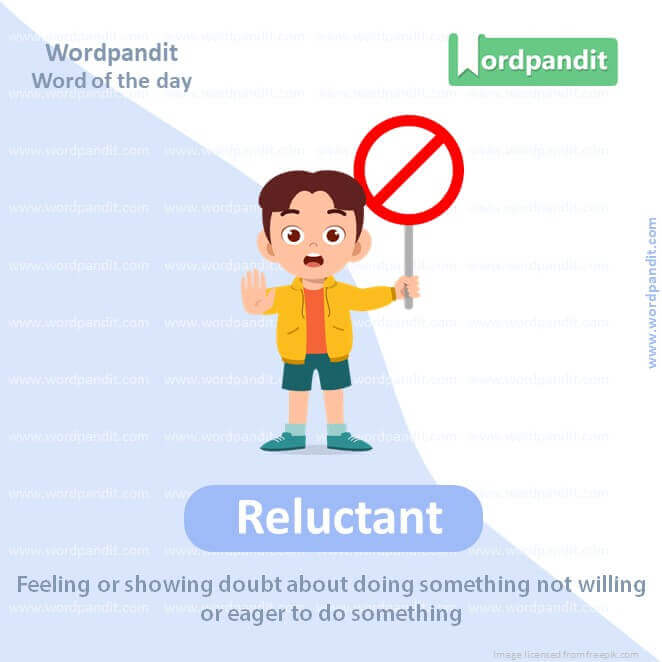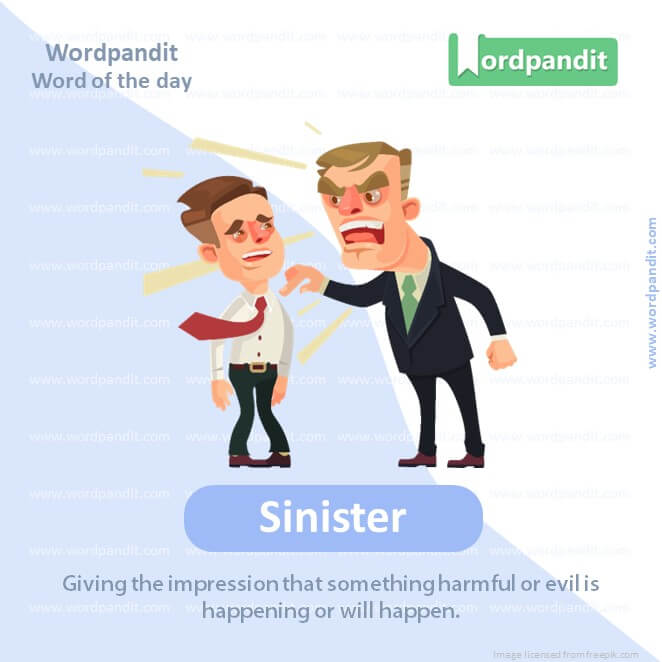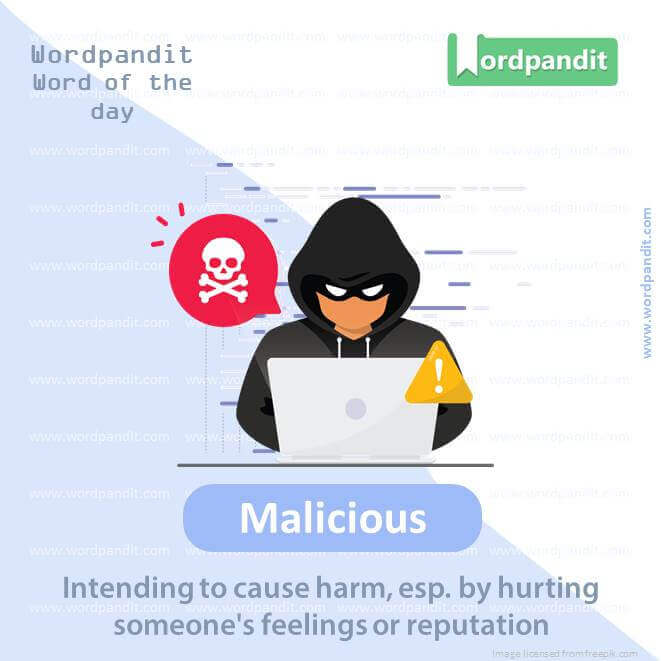Daily Vocabulary Words: List of Daily Used Words in Leading Indian Newspapers
Hi there. Welcome to this special section @ Wordpandit. Our endeavour here is straightforward: highlighting daily vocabulary words that you would come across in leading newspapers in the country. We have included the following newspapers in our selection:
• The Times of India
• The Economic Times
• Hindustan Times
• Mint
• Indian Express
We are putting in extensive work to develop your vocabulary. All you have to do is be regular with this section and check out this post daily. This is your repository of commonly used words; essentially, we are posting a list of daily used words. Hence, this has significant practical application as it teaches you words that are commonly used in leading publications mentioned above.
Visit the website daily to learn words from leading Indian newspapers.
WORD-1: IMPENDING
CONTEXT: “Local businesses are gearing up for the impending festive season, hoping for a boost in sales after the recent economic downturn.”
SOURCE: The Economic Times.
EXPLANATORY PARAGRAPH: “Impending” is like when you look at the sky, and you see dark clouds. You think, “Oh, it might rain soon!” That soon part, when something is about to happen, that’s “impending.”
MEANING: About to happen soon (adjective).
PRONUNCIATION: im-PEN-ding
SYNONYMS: Looming, forthcoming, imminent, upcoming, nearing, approaching, near
USAGE EXAMPLES:
1. The dark clouds signaled an impending storm.
2. We were excited about the impending arrival of our baby sister.
3. The city prepared for the impending festival.
4. She felt a sense of impending doom.
WORD-2: CONTINGENT
CONTEXT: “India sent a large contingent to the Olympics this year, with hopes pinned on young athletes making their mark on the global stage.”
SOURCE: The Times of India.
EXPLANATORY PARAGRAPH: “Contingent” is like if you told your friend, “We can go play outside, but only if it doesn’t rain.” That “if” part means something is “contingent” or depends on something else.
MEANING: Depending on something else that might or might not happen (adjective); a group of people with a shared feature (noun).
PRONUNCIATION: kuhn-TIN-jent
SYNONYMS: Conditional, dependent, subject to, reliant, provisional, group, delegation
USAGE EXAMPLES:
1. Our trip to the beach is contingent on the weather.
2. The school’s funding is contingent upon good test results.
3. A contingent of fans traveled to support their team.
4. There was a large contingent from the local club at the parade.
WORD-3: CONSECRATION
CONTEXT: “The consecration of the new temple drew thousands of devotees from all over the state, marking a significant event in the religious calendar.”
SOURCE: Indian Express.
EXPLANATORY PARAGRAPH: “Consecration” is when something is made very special and important, almost like a toy you’d keep in a special box because it’s your favorite.
MEANING: The act of making something holy or very respected (noun).
PRONUNCIATION: kon-suh-KRAY-shun
SYNONYMS: Blessing, sanctification, dedication, ordination, anointing, purification, hallowing
USAGE EXAMPLES:
1. The church held a consecration ceremony for the new altar.
2. The ancient relic’s consecration made it very valuable.
3. The priest’s consecration took place in a grand ceremony.
4. The consecration of the land meant it was protected.

WORD-4: RELUCTANT
CONTEXT: “Despite the evidence pointing to the benefits of the vaccine, a section of the population remains reluctant to get inoculated.”
SOURCE: Hindustan Times.
EXPLANATORY PARAGRAPH: “Reluctant” is like when you don’t really want to share your candy, but you do it anyway. Even though you shared, you were a bit unsure or hesitant at first, and that feeling is called “reluctant.”
MEANING: Feeling or showing doubt about doing something not willing or eager to do something (adjective).
PRONUNCIATION: reh-LUK-tant
SYNONYMS: Hesitant, unwilling, disinclined, loath, resistant, unsure, doubtful
USAGE EXAMPLES:
1. He was reluctant to lend his favorite book.
2. The cat was reluctant to enter the water.
3. She was reluctant to share her secrets.
4. Despite his reluctant attitude, he finally agreed.

WORD-5: SINISTER
CONTEXT: “Behind the seemingly normal facade of the village, a more sinister plot was uncovered, leading to a series of investigations.”
SOURCE: Mint.
EXPLANATORY PARAGRAPH: “Sinister” is like when you watch a movie and there’s a spooky or bad character that makes you feel a little scared or uneasy. That kind of feeling or person is called “sinister.”
MEANING: Giving the impression that something harmful or evil is happening or will happen. (adjective).
PRONUNCIATION: SIN-is-ter
SYNONYMS: Ominous, menacing, threatening, malevolent, malicious, dark, foreboding
USAGE EXAMPLES:
1. There was a sinister look in his eyes.
2. The abandoned house had a sinister appearance.
3. The dark clouds had a sinister shape.
4. The music in the movie was very sinister.
WORD-6: VOYEUR
CONTEXT: The rise of surveillance technology has sparked debates on privacy, with critics branding certain tools as instruments of a ‘voyeur’ state.
SOURCE: The Times of India.
EXPLANATORY PARAGRAPH: Imagine someone who likes to secretly watch others, like peeking through a window without people knowing. That’s not really nice, right? That person is called a “voyeur.”
MEANING: A person who gets pleasure from secretly watching others (noun).
PRONUNCIATION: voy-YUR
SYNONYMS: Peeping Tom, spy, observer, watcher, onlooker, scopophile, pryer
USAGE EXAMPLE:
1. The detective warned about a voyeur in the neighborhood.
2. She felt uncomfortable, thinking there might be a voyeur watching.
3. The film explored the mind of a voyeur.
4. Cameras everywhere make us feel like we’re surrounded by voyeurs.

WORD-7: CERTITUDE
CONTEXT: The CEO spoke with certitude about the company’s future prospects, instilling confidence in the shareholders during the annual meeting.
SOURCE: The Economic Times.
EXPLANATORY PARAGRAPH: “Certitude” is like being very, very sure about something. It’s when you know something is true, just like you know the sun will rise every morning.
MEANING: The state of being certain or confident/ a state of being free from doubt (noun).
PRONUNCIATION: SUR-ti-tood
SYNONYMS: Sureness, confidence, assurance, conviction, certainty, positiveness, firmness
USAGE EXAMPLE:
1. She spoke with certitude about the outcome.
2. His certitude in his decision was admirable.
3. The evidence brought certitude to their theory.
4. With certitude, he proclaimed his innocence.

WORD-8: GRAPPLE
CONTEXT: As cities grapple with increasing pollution levels, environmentalists urge for more sustainable urban planning strategies.
SOURCE: Hindustan Times.
EXPLANATORY PARAGRAPH: “Grapple” is like when you try to hold on to something really tight, or when you’re wrestling with a problem trying to figure it out.
MEANING: To fight, especially in order to win something (noun).
PRONUNCIATION: GRAP-ul
SYNONYMS: Wrestle, tussle, struggle, contend, battle, scuffle, skirmish
USAGE EXAMPLE:
1. The two players grappled for the ball.
2. She grappled with the difficult math problem.
3. The machine uses a grapple to pick up logs.
4. After a brief grapple, he managed to escape.
WORD-9: PASTICHE
CONTEXT: The new art exhibition displays a pastiche of various styles, reflecting the diverse cultural influences of the region.
SOURCE: Mint.
EXPLANATORY PARAGRAPH: Imagine you take pieces from different puzzles and put them together to make a new picture. “Pastiche” is like that – it’s when something is made by copying different things.
MEANING: A work of art, literature, or music that imitates the styles of different works (noun).
PRONUNCIATION: pahs-TEESH
SYNONYMS: Imitation, collage, mimicry, parody, homage, medley, blend
USAGE EXAMPLE:
1. The film was a pastiche of various classic movie genres.
2. The architecture of the house is a pastiche of modern and traditional elements.
3. His latest song is a pastiche of different musical styles from the 80s.
4. Some critics felt the novel was merely a pastiche, lacking originality.

WORD-10: MALICIOUS
CONTEXT: Cybersecurity firms have warned of a new malicious software targeting banking applications, urging users to update their security measures.
SOURCE: Indian Express.
EXPLANATORY PARAGRAPH: “Malicious” is like when someone does something on purpose to hurt someone else, like breaking a toy just to be mean. It’s when someone has bad intentions.
MEANING: Intending to cause harm, esp. by hurting someone’s feelings or reputation (adjective).
PRONUNCIATION: ma-LISH-us
SYNONYMS: Nasty, spiteful, malevolent, harmful, malign, vindictive, wicked
USAGE EXAMPLE:
1. She spread malicious rumors about her colleague.
2. The virus was sent in a malicious email.
3. The act was seen as a malicious attempt to damage his reputation.
4. His malicious actions hurt many people.







